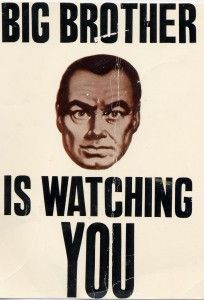CA bans state cooperation with warrantless spying

 From new regulations on ride-sharing to a ban on plastic bags, Californians lost plenty of liberty this legislative session. But freedom in the Golden State scored at least one small victory in 2014.
From new regulations on ride-sharing to a ban on plastic bags, Californians lost plenty of liberty this legislative session. But freedom in the Golden State scored at least one small victory in 2014.
Gov. Jerry Brown recently signed into law a bipartisan bill that would ban the state from cooperating with warrantless spying by the federal government.
Senate Bill 828, co-authored by Sens. Ted Lieu, D-Torrance, and Joel Anderson, R-Alpine, would ban state officials from complying with a federal agency’s request for electronic data if the state knows that request is illegal or unconstitutional. The bill is a response to the National Security Agency’s massive surveillance programs that collected phone and electronic data on millions of American citizens.
Lieu stands up for 4th Amendment
Dubbed the 4th Amendment Protection Act, the bill sailed through both houses of the Legislature without opposition.
“I commend Gov. Brown for recognizing that the National Security Agency’s massive and indiscriminate collecting of phone and electronic data on all Americans, including more than 38 million Californians, is a threat to our liberty and freedom,” Lieu said. “We can only hope the feds halt this illegal and unconstitutional practice nationally.”
Supporters of the bill, which include the American Civil Liberties Union of California, the Bill of Rights Defense Committee, California Attorneys for Criminal Justice and the Consumer Federation of California, say that the new law is a symbolic victory for constitutional principles.
“The federal government’s dragnet collection of millions of phone records and metadata is very troubling,” said CAIR-Sacramento Valley Executive Director Basim Elkarra. “We are happy to see California leading the way in pushing back against the unconstitutional data collection by the NSA and ensuring the observance of the Fourth Amendment, as a basic principle of this nation’s founding and democratic values.”
Orwellian technology exposed by Snowden
As CalWatchDog.com first reported in January, Lieu’s legislation comes in response to last summer’s revelations by former defense contractor and government whistleblower Edward Snowden that the NSA has been collecting phone data on millions of Americans. In December, a federal judge ruled that the bulk collection of Americans’ phone records is likely unconstitutional.
“The almost-Orwellian technology that enables the government to store and analyze the phone metadata of every telephone user in the United States is unlike anything that could have been conceived in 1979,” Judge Richard Leon wrote in his December ruling.
California’s new law covers “electronically stored information,” which is any data stored in a digital form, as well as the metadata surrounding any communication. Metadata is the “data about data” and can include the time, date, location, duration, origin or identity of the persons. In many cases, such information can be as revealing as the content of a call or email itself.
“New technology is demonstrating just how sensitive metadata can be: how friend lists can reveal a person’s sexual orientation, purchase histories can identify a pregnancy before any visible signs appear, and location information can expose individuals to harassment for unpopular political views or even theft and physical harm,” the American Civil Liberties Union of California explained in its February 2014 white paper, “Metadata: Piecing Together a Privacy Solution.”
Feds occasionally rely on state for data
According to the legislative analysis, federal agencies occasionally rely “upon services provided by the state and/or private entities that provide services on behalf of the state” in order to illegally collect data.
“SB 828 makes clear that the state of California will continue to uphold the Fourth Amendment rights of its citizens, even under pressure from the federal government,” said Anderson, the Republican coauthor of the bill. “Our nation is unequivocally dedicated to stopping terrorism, yet we must be ever vigilant that our desire for safety does not come at the expense of the freedoms and liberty our enemies seek to destroy.”
The new law, which is less than 200 words in length, is scheduled to take effect on Jan. 1, 2015. Here’s the text of the bill:
Senate Bill 828: 4th Amendment Protection Act
The state shall not provide material support, participation, or assistance in response to a request from a federal agency or an employee of a federal agency to collect the electronically stored information or metadata of any person if the state has actual knowledge that the request constitutes an illegal or unconstitutional collection of electronically stored information or metadata.
Related Articles
DMV could spy on you through your license plate
A DMV “pilot” program could put digital license plates on your car. Supposedly it would “save” money so you wouldn’t
19 CA members of Congress take pensions
Former San Diego city councilman and mayoral candidate Carl DeMaio, who brought comprehensive pension reform to San Diego, is taking
Trump surges in key CA primary
Fulfilling analysts’ growing expectations and leaving some Golden Staters in disbelief, California has emerged as perhaps the most decisive contest




